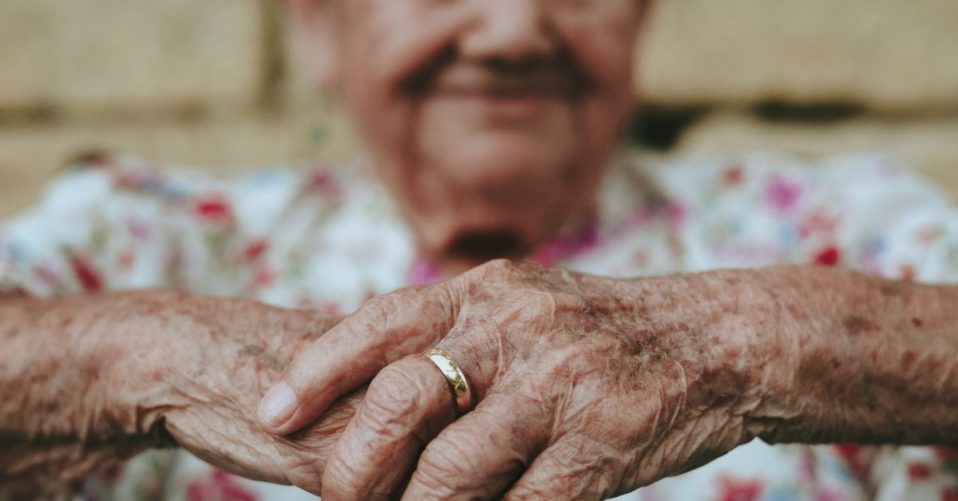By: Michael Crooks
Lockdowns can have an impact on the mental health of anyone, but for those with dementia, the long periods of isolation can lead to heartbreaking outcomes.
Recently during Dementia Action Week (September 20-26), the non-profit charity and advocacy organisation Dementia Australia called on all Australians to take action to ensure those who have dementia are engaged with their loved ones and communities.
This is particularly important for those currently experiencing prolonged lockdowns in NSW and Victoria.
“We’ve all had a taste of social isolation through COVID and it’s not pleasant,” Dementia Australia CEO Maree McCabe said.
“And for people living with dementia, both in the community and in residential aged care, the research is showing that the symptoms of dementia are exacerbated in lockdown.”
That means people suffering dementia will often lose their abilities or connections to loved ones.
In one heartbreaking case, Ms McCabe tells of a woman in South Australia who was taking care of her sister, who had early onset dementia. During a lockdown period she was unable to visit her sister in residential aged care.
“The next time she went in, her sister couldn’t remember who she was,” Ms McCabe said.
“So, it’s an important issue. It’s an issue where we as a community need to make sure that we’re supportive and engaging people with dementia.”
“It’s an issue where we as a community need to make sure that we’re supportive and engaging people with dementia,” – Dementia Australia CEO Maree McCabe
Stigma needs to change, support needs to increase
Group Homes Australia (GHA) founder Tamar Krebbs said “every three seconds someone around the world is being diagnosed with dementia”.
“One in 12 Australians over the age of 65 living with dementia. 75 percent of people are not diagnosed globally,” she said.
Ms Krebs said dementia was a degenerative, progressive disease but people could learn to live well with it.
“Our mission and vision [at GHA] is to help people live beyond a diagnosis of dementia and not live and suffer with the stigma of dementia,” she said.
“As a society we owe it to people to help them live and be supported with this diagnosis and we know that with many other diagnoses like diabetes and hypertension there are many resources out there for people.
“Unfortunately with dementia there is a lot of stigma and shame that goes along with it and that means and that needs to change.”
Maintaining contact
One of the biggest issues of lockdowns is that many family members of a loved one with dementia are often intricately involved in the person’s care, and due to restrictions can no longer visit them at an aged care facility.
The care can include assisting with mealtimes to showering and dressing. According to Ms McCabe, the lack of this care is having a “significant effect”.
“Aged care providers have been doing their best and aged care staff have been amazing,” she said.
“It’s just some of the unintended consequences of what we’re facing.”
Raising the standard
One way aged care facilities are improving the situation, is by facilitating video calls with family members.
“It’s helpful, and that’s OK when they’ve got the staff to do that,” Ms McCabe said.
“And it’s certainly better than nothing. Some aged care providers are also passing on phone messages or printing out emails and reading them to residents.
“There are a lot of providers doing very good work but there are some that are not. And what we need to do is lift that standard across the industry.”
Staying active
Activities such as gardening and cooking can be extremely beneficial for those with an early stage of dementia.
Ms Krebbs said GHA facilitates such activities in a unique caring environment. In what is an alternative to traditional aged care facilities, up to 10 residents live in a GHA home with 24-hour care, and undertake activities together.
Residents cook together, bake together and garden together to overcome social isolation.
Ms Krebbs, a mother of four, calls these activities “connection forming connections”.
The simple act of putting on some music can also be beneficial.
The simple act of putting on some music can also be beneficial.
“Music is something that most people love, and it’s no different for people living with dementia,” Ms McCabe said.
“And that’s something that people can play for a person. It can be relaxing and enjoyable.”
“Take action”
Another problem that has arisen during lockdowns is that many home services, such as Meals on Wheels or visiting nurses, have stopped, or been limited, due to the threat of COVID.
“Of the 470,000 Australians living with dementia, 70 per cent actually live in the community,” Ms McCabe said.
“And people with dementia need those services. And if they don’t have family, who then is helping them? Who is assisting with their care?”
This is why Dementia Australia is encouraging Australians to help through such actions as providing support to a person living with dementia (including a neighbour), supporting a carer, or donating.
Dementia Australia is encouraging Australians to help through such actions as providing support to a person living with dementia (including a neighbour), supporting a carer, or donating.
“…we want more than awareness,” Ms McCabe said. “We want people to take action.”
Dementia Australia provides information, education and services for the nearly half a million Australians living with dementia, and the almost 1.6 million people involved in their care.
For more information, visit Dementia Australia’s website.
Article supplied with thanks to Hope Media.
Feature image: Photo by Eduardo Barrios on Unsplash




